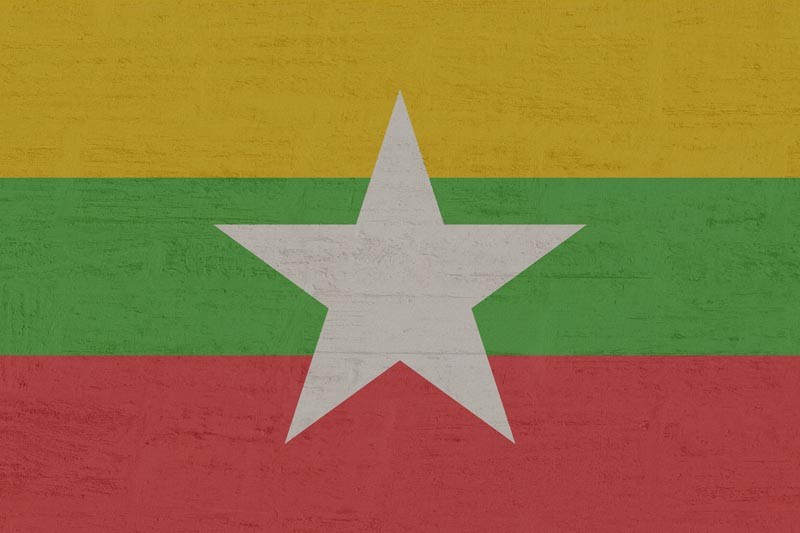ASEAN Tweaks its Engagement with Myanmar Amid Ongoing Conflict

5/27/2025 Myanmar (International Christian Concern) — Shortly after Myanmar’s military seized the country in 2021, the Association of Southeast Asian Nations (ASEAN) published a five-point consensus plan designed to stem the violence and bring peace to the world’s longest-running civil war.
In the four years since the consensus plan was created, little to no meaningful progress toward peace has been made, and it is widely seen as a policy failure.
Addressing the ongoing violence being perpetrated by Myanmar’s military, ASEAN met this week for talks designed to jumpstart its peacebuilding efforts in Myanmar. Among other changes, the body moved to make its Special Envoy to Myanmar a permanent position rather than replacing it annually. According to observers, this adjustment may facilitate more effective engagement on the issue and promote long-term progress.
ASEAN, founded in 1967 to promote economic cooperation and peaceful cooperation in Southeast Asia, has struggled to formulate an effective response to the situation in Myanmar, itself a member state. Myanmar’s military government participates in specific ASEAN meetings but remains barred from ASEAN’s high-level leaders’ summits because it fails to pursue peace.
While some of the goals of the five-point consensus plan were aspirational — such as the cessation of all violence — others were more practical and addressed ASEAN’s response to the situation. The fourth point called for humanitarian assistance, while the third created a Special Envoy position to address the conflict and facilitate mediation.
While the Special Envoy position has been filled, ASEAN member states have, to date, filled the role on a rotating basis, which limits its effectiveness.
“As it stands, we appoint a new special envoy every year, which means we have to start all over again each time,” said Malaysian Foreign Minister Mohamad Hasan, explaining the rationale behind this week’s move to make the position a permanent one. “It’s just a matter of who will be appointed as the permanent special envoy, possibly on a three-year term.”
While ASEAN’s Special Envoy to Myanmar has faced challenges in bringing about peace, it has had a positive effect in certain instances. When a major earthquake struck Myanmar earlier this year, the Malaysian delegation to ASEAN played a crucial role in negotiating a ceasefire to facilitate humanitarian relief. Still, reports since indicate that the junta has broken the ceasefire on multiple occasions with air strikes on areas held by ethnoreligious minorities.
The Tatmadaw has leveraged the earthquake to enhance its position on the international stage, making a rare appeal for external assistance and accepting aid from both allied and hostile countries. While commendable on its face, the regime has a long history of weaponizing aid against its people and seems to be using this most recent crisis to break through a concerted international effort to press for change through forced isolation.
The United States has long led the world in imposing sanctions on the Tatmadaw while providing aid directly to the people. These efforts were recently halted as part of a larger pause in U.S. foreign assistance. A three-person American team sent to facilitate the United States’ response was fired shortly after arriving in Myanmar to assess the damage.
In March, the U.S. Commission on International Religious Freedom (USCIRF) released a report criticizing the Tatmadaw for its systematic repression of religious minorities and urging the international community to increase attention to the plight of the persecuted in Myanmar.
“The country has seen the displacement of over 3.5 million people in recent years,” the USCIRF report noted, “including more than 90,000 in Christian-majority Chin State, 237,200 in Kachin State, and one million Muslim-majority Rohingya refugees.” The earthquake and the subsequent airstrikes have only exacerbated these high levels of displacement.
Although a large majority of the population is ethnic Burman and an even greater percentage is Buddhist, the communities that make up the remainder are well-established, well-organized, and, for the most part, predate the formation of the modern state by centuries.
In many cases, Myanmar’s ethnic minorities have taken on a distinct religious identity as well. About 20% to 30% of ethnic Karen are Christians, while other groups — such as the Chin — are more than 90% Christian. This overlap of ethnic and religious identity has created a volatile situation for believers.
Representing an extremist interpretation of Buddhism, the Burmese military has a long history of violence against the people of Myanmar, including against ethnic and religious minorities like the Muslim-majority Rohingya and Christian-majority Chin.
The junta is known to abduct children, forcing them to walk ahead of their troops through minefields. In many cases, their victims are members of ethnic and religious minority communities fighting back against the atrocities of a military that has waged a decades-long war of ethnic and religious cleansing.
Despite this support, experts believe that the Burmese military is atrophying rapidly, with as few as 150,000 personnel remaining after the loss of about 21,000 through casualties or desertions since the 2021 coup. This number is significantly smaller than previous estimates of 300,000 to 400,000 personnel and calls into question the junta’s ability to sustain its nationwide military campaign, especially after a series of high-profile losses in recent years.
To read more news stories, visit the ICC Newsroom. For interviews, please email press@persecution.org.
For interviews, please email press@persecution.org
